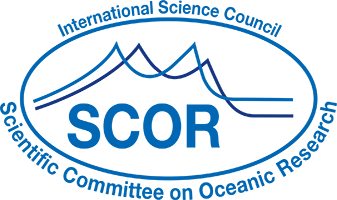IOCCP Scientific Steering Group
The IOCCP Scientific Steering Group (SSG) is currently composed of 2 Co-Chairs and 10 Members selected for their expertise in specific areas of IOCCP activity and their ability to provide a global perspective on current research and observation activities in marine biogeochemistry as well as on future directions for the community. The SSG meets quarterly to develop and endorse elements of project’s strategy. The implementation of this strategy is coordinated by the IOCCP Project Office staffed by a Project Director and a Project Officer.
Calendar
|
|
IOCCP meetings, IOCCP-related meetings as well as events related to a wider scope in marine biogeochemistry. |





 Please wait...
Please wait...